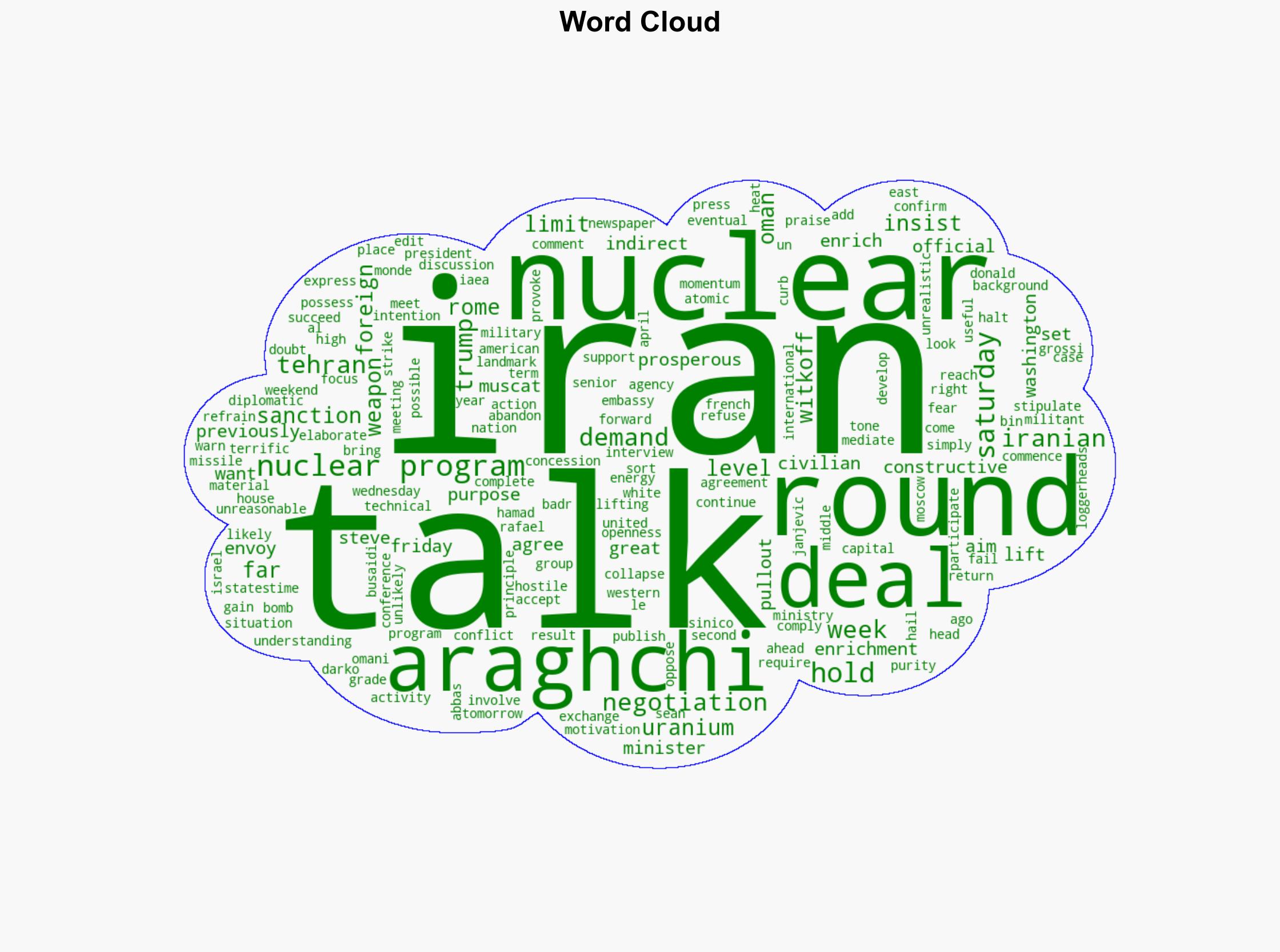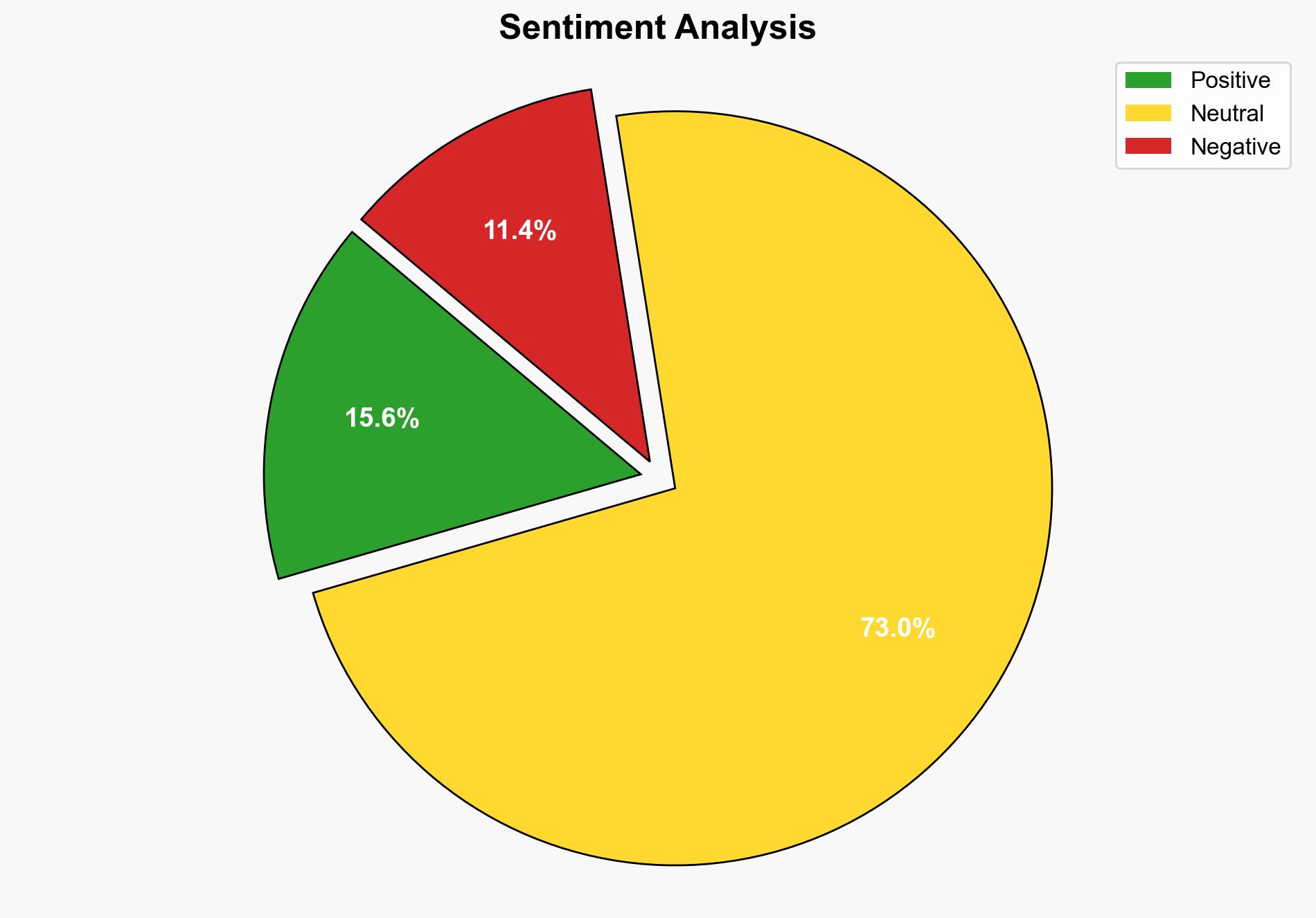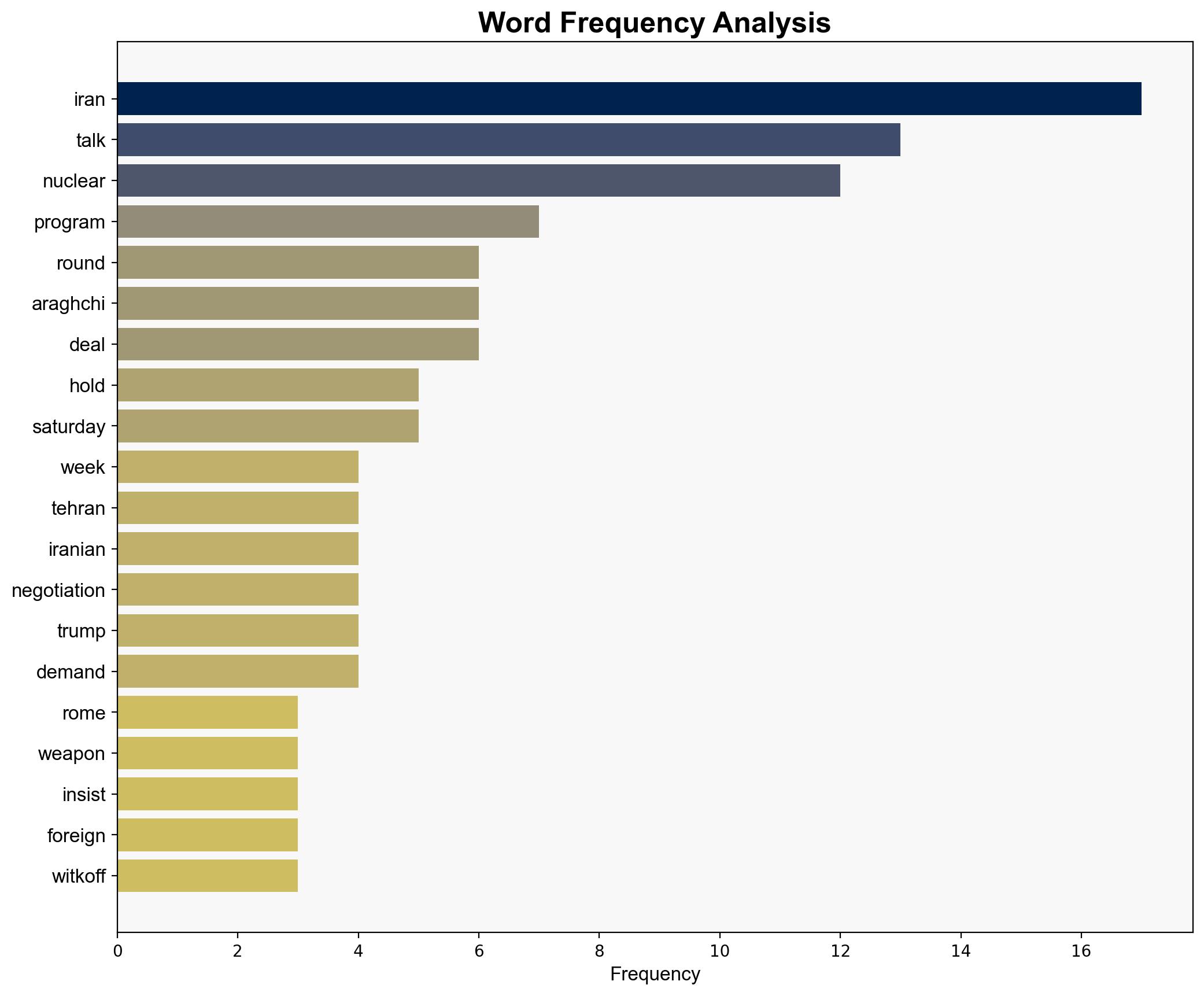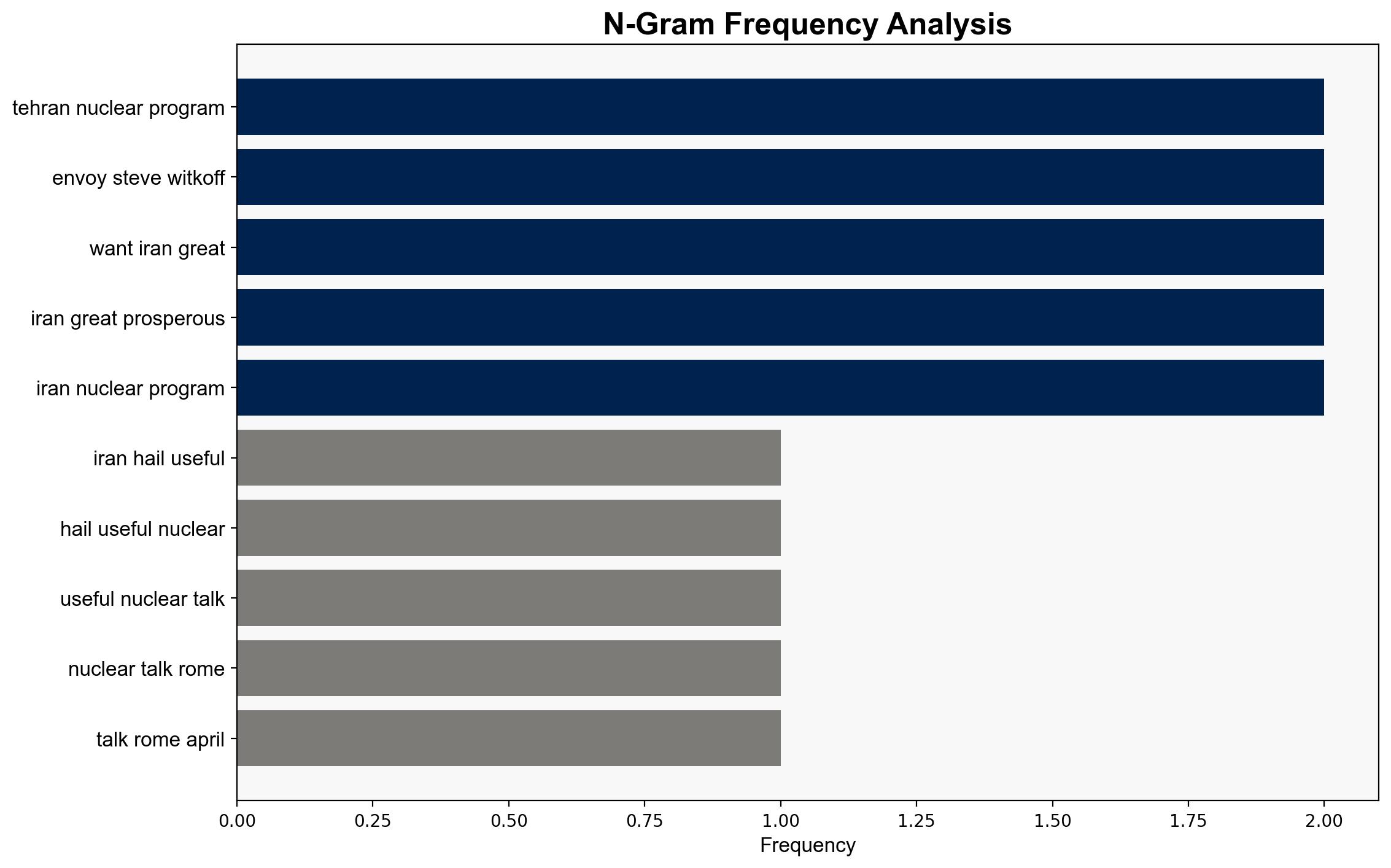US Iran hold second round of nuclear talks in Rome – DW (English)
Published on: 2025-04-19
Intelligence Report: US Iran hold second round of nuclear talks in Rome – DW (English)
1. BLUF (Bottom Line Up Front)
The recent nuclear talks between the United States and Iran in Rome mark a significant diplomatic engagement aimed at addressing concerns over Iran’s nuclear program. The discussions, characterized as constructive, indicate a potential for reaching an understanding, although challenges remain. The strategic recommendation is to continue diplomatic efforts while preparing for potential setbacks due to unresolved issues such as uranium enrichment levels and sanctions.
2. Detailed Analysis
The following structured analytic techniques have been applied:
SWOT Analysis
Strengths: Diplomatic engagement provides a platform for dialogue and potential resolution. The involvement of multiple stakeholders, including Oman, enhances mediation efforts.
Weaknesses: Persistent mistrust between parties and differing objectives, particularly regarding uranium enrichment and sanctions relief.
Opportunities: Successful negotiations could lead to regional stability and economic benefits for Iran through the lifting of sanctions.
Threats: Failure to reach an agreement could escalate tensions, potentially leading to military confrontations.
Cross-Impact Matrix
The outcome of the talks could significantly impact regional stability. A successful agreement may reduce tensions in the Middle East, while failure could exacerbate conflicts involving Iran’s regional adversaries.
Scenario Generation
Scenario 1: Successful negotiations lead to a phased lifting of sanctions and a reduction in nuclear activities, fostering regional stability.
Scenario 2: Talks stall, resulting in increased sanctions and heightened military posturing by both the US and Iran.
Scenario 3: Partial agreement is reached, with some sanctions lifted, but key issues remain unresolved, maintaining a status quo of cautious engagement.
3. Implications and Strategic Risks
The ongoing negotiations highlight vulnerabilities in regional security dynamics. The potential for miscommunication or unmet expectations poses risks for escalation. Economically, the continuation of sanctions could further strain Iran’s economy, impacting regional trade and stability.
4. Recommendations and Outlook
- Encourage continued diplomatic engagement with a focus on incremental progress to build trust.
- Prepare contingency plans for potential escalation, including diplomatic and military responses.
- Explore economic incentives that could facilitate compliance and cooperation from Iran.
- Monitor regional actors’ responses to the negotiations to anticipate shifts in alliances or tensions.
5. Key Individuals and Entities
Abbas Araghchi, Steve Witkoff, Badr bin Hamad al Busaidi, Rafael Grossi




